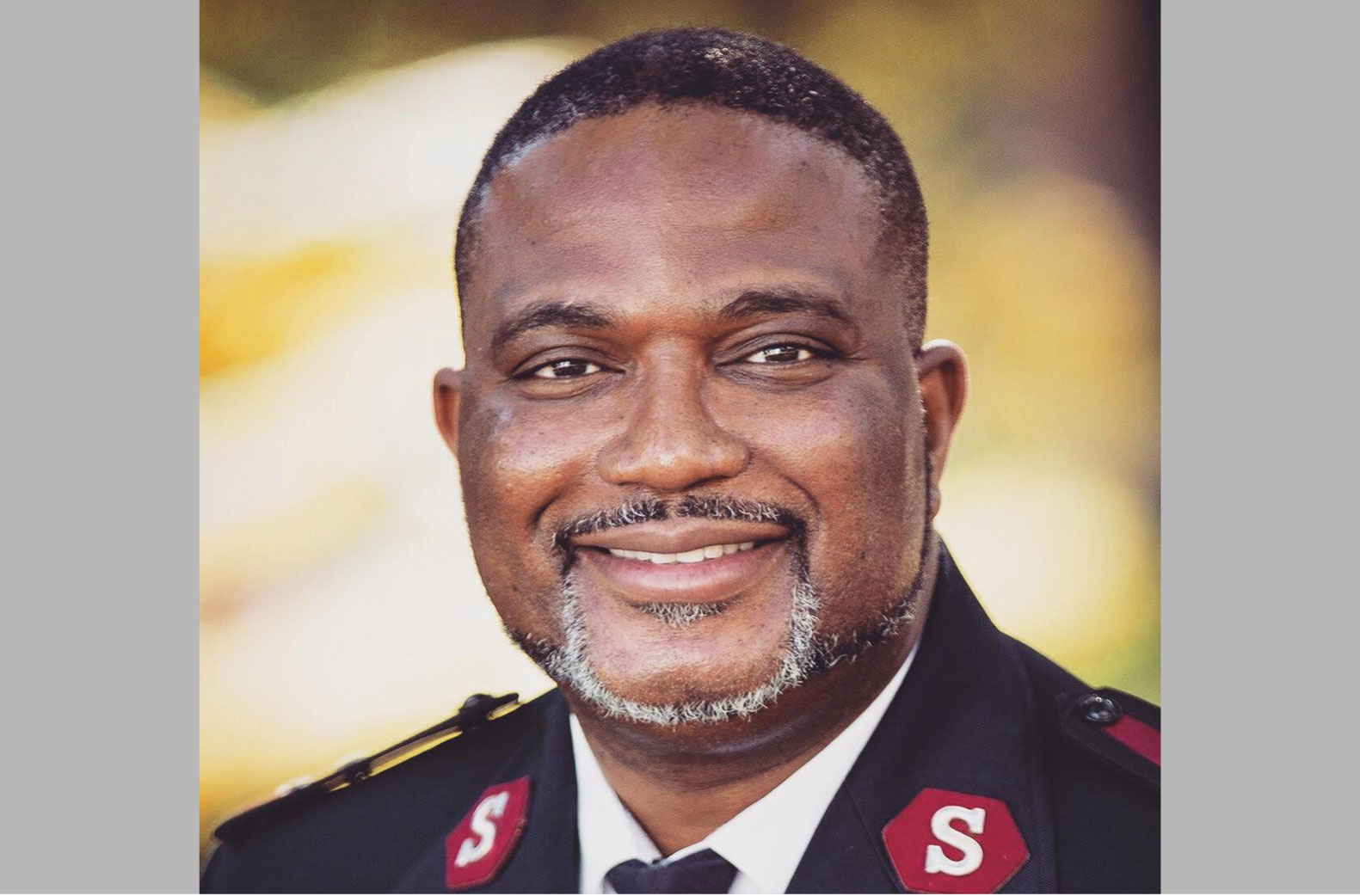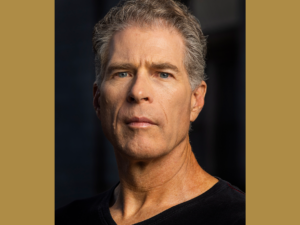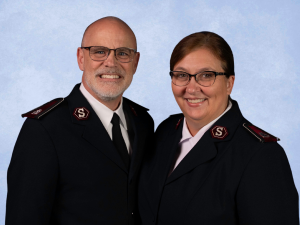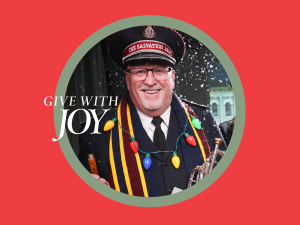As the saying goes, the mind is a terrible thing to waste.
That’s the ethos Major Terry Masango lives by, and it’s paid off as he recently received a Doctor of Education in Organizational Leadership.
Dr. Masango was raised in Zimbabwe and now as a Salvation Army officer, or pastor, he serves in the Seattle area as the General Secretary in the Northwest Division—a role you might compare to a chief operations officer.
Along his educational journey, Dr. Masango learned to embrace discipline, and is now putting those skills to work.
On this episode, he shares more about his academic pursuits and how he’s applying them to his ministry with The Salvation Army.
Show highlights include:
- What it means for Masango to graduate with a doctorate.
- What his childhood was like in Zimbabwe.
- His schooling experience.
- Why he loves to learn.
- What brought him to America.
- His family’s history with The Salvation Army.
- When and why he decided to pursue higher education.
- His experience studying for a doctoral degree.
- What he learned about himself along the way.
- The topic(s) of his dissertation.
- What’s next for him and encouragement to others.
Listen and subscribe to the Do Gooders Podcast now. Below is a transcript of the episode, edited for readability. For more information on the people and ideas in the episode, see the links at the bottom of this post.
* * *
Christin Thieme: Well, Dr. Major Terry Masango, welcome to The Do Gooders Podcast. Thank you for being here today.
Terry Masango: Thank you for the invitation. It’s my honor to be here today.
Christin Thieme: You recently graduated with your doctorate, so I’m wondering as we start out here, if you can tell us a little bit about—after working for that, for I imagine such a long time—what does it mean to you to have finally reached this moment?
Terry Masango: I recently wrote somewhere that I’m pinching myself wondering, “Did this really happen?” It was a long and difficult journey. It took me about four and a half years up to the time that I was able to do my defense. And then it was a total of five years by the time I walked to receive my degree. It wasn’t easy, but I’m glad that it’s done.
Christin Thieme: Yes, I imagine it’s a bit of a relief at this point.
Terry Masango: Yes.
Christin Thieme: So if you could take it back to the beginning, you didn’t grow up here in the U.S. Can you share a little bit more about your childhood and your own schooling experience growing up?
Terry Masango: Yes. So I was born and raised in Zimbabwe, Africa. My parents, my father only has a 10th grade education and my mother has a ninth grade education. However, when I was attending school growing up, I know that my parents, but also people around me and my extended family, they all emphasized education. And generally Zimbabweans love education. So I knew I wanted to go far.
And by the time I was in elementary school, maybe around fifth grade, sixth grade, I had thoughts in my mind that I would be a medical doctor someday. That’s what I wanted to do. But when I got to high school, there were two significant things that happened. One was my father, unfortunately, he’s an alcoholic and things were very difficult for me at home. So instead of going to university after high school, I decided to look for a job. And I got a job in a bank and I was doing finance and accounting and I absolutely loved it.
But also at that time, I felt that medical doctor was not going to work for me ’cause I wanted to work. I liked numbers. So I thought finance would be it. So that’s the journey I took. And then an opportunity came in 1999 for me and right at that time I just got married. So my wife and I had an opportunity to go to Australia to the School for Youth Leadership. Which is a youth leadership school that was just outside of Sydney, Australia.
So we moved there and I was glad that I was good doing school. I’ve always loved school, but it was only a one year program. Then we moved to the United States and when we came I wanted to study. I wanted to do business. At that point I was considering a ministry. But because of the research situation, I could not do school, but I could work for the Army. I did religious work as a visa.
So I worked for The Salvation Army for four years in Spokane, Washington. Then went to The Salvation Army training college, which is our seminary. And from there I got an AA degree in ministry. That sort of sparked my desire again to go back to school, but it took me a while before I did.
So in 2012, I enrolled in Nazarene Bible College. We are theological cousins, so it was easier for me to enroll in a Nazarene Bible college. And I graduated with a Bachelor of Arts in Leadership and Ethics. That really got me interested more in leadership than I even did with finance. So a couple years later I enrolled in Grand Canyon University and I have a master’s degree in leadership from Grand Canyon University. And then after that I decided to continue and went to enroll in the Doctor of Education in Organizational Leadership program, of which I just graduated this past May with.
Christin Thieme: Congratulations. I mean, that is a lifetime of learning, you could say.
Terry Masango: Yes, yes.
Christin Thieme: So you said you’ve always loved learning. What have you learned about yourself through this whole experience of education?
Terry Masango: Yes, I’ve always loved learning. But what I’ve learned is that especially online education is even tougher because you’re not in an environment where everybody around you is in school. So I learned that I love discipline. I’m pretty disciplined in most areas. So it was easier for me to just have my own schedule, my own calendar of what days I’m working on my papers and submitting them. I don’t like being late, so I didn’t want to submit my assignments late. I always knew that I needed to submit them early. So that was especially the beginning of my studies, I had to really say, “I need to rise up to this scheduling system.”
But when I go to doing the doctorate, you know, do some coursework for about a couple years or three years. Then after that you move into the dissertation stage. Then you are pretty much on your own. There’s nobody writing you saying, “You have a paper due on Wednesday night at this time.” So I learned to really schedule my time. I would make sure, most Saturdays I was in the library. If we were on vacation, I looked for libraries and we went to a library because I studied better when there’s silence at home. At home, sometimes I’m distracted by the TV or by family and also by the refrigerator. I would find myself walking over to the refrigerator many times to snack on different things. So the library became my friend and discipline is what I learned most about myself.
Christin Thieme: Yeah, absolutely. I mean, you talked about the discipline needed to get through it, but what was the experience of studying for a doctoral degree? How did it differ, maybe from your earlier experience in university?
Terry Masango: The doctoral level, firstly is the amount of the volume of reading you have to do during coursework time. It was just so demanding of my time that I learned to function on very little sleep for a while. Also, the interesting thing is, usually when you are going back for higher education, you work. Wherever you are working, your company will say, “Oh, you are doing so well. We’re going to promote you.” But that’s when your time is demanded in more education. At the same time, more responsibilities. And I saw the same happen for me. Our appointment to Pasadena, which was very busy and a place that demanded more leadership from me. That’s when I was really getting more involved with my education, higher education. So I had to really lead well and be visible as a leader. But at night I’m being visible as a student.
So when I then got further into the dissertation process, I had to schedule time so good that I was saying no to a lot of things. I think that’s a harder thing for most people is to say, “I have a goal to graduate. So I have to say no to social media or to games or to different things that demand our time so we can focus on one thing.” And when you’re doing your dissertation, you have a chair, you have a committee. So you have people working with you, but their role really is just to guide you. And so if you don’t do much, they’re just waiting for you to reach back to them. So at that point, it just demands that you show a lot of both integrity, but also the idea that I can work and work through this.
Christin Thieme: Yeah, a lot of that discipline, like you mentioned.
Terry Masango: Yes.
Christin Thieme: So you mentioned meeting or starting to work for The Salvation Army in Spokane. Is that how you first came to know The Salvation Army?
Terry Masango: Good question. Actually, I’m a fifth generation. That means that when The Salvation Army came to Southern Africa—back then we didn’t have the demarcations of borders—they settled in an area where my family lived. And so some of the first converts of The Salvation Army were my family members. So from that time in 1891, there’ve been Salvation Army leaders in my family. And so my grandpa, for example, his brothers were Brigadiers. But my father’s generation, nobody really became a Salvation Army pastor or leader.
But we still grew up going to The Salvation Army church. Because in Zimbabwe or elsewhere in the world, The Salvation Army, the work of social services is less than the church part of it. So quite different from the United States. So I knew The Salvation Army. I knew it as a church mostly. And then so moving to the United States in the year 2000, I got more introduced to the nonprofit work we do and the good work that we do throughout the United States.
Christin Thieme: And what is your role today with The Salvation Army?
Terry Masango: So I’m actually in a transitioning time right now. Since two years ago we moved from Pasadena, California, to the Northwest Division. I work at divisional headquarters in Seattle. And our division or district covers all of Washington state, Northern and Western Montana. So my role really is to be the Divisional Secretary for Business, meaning in other places it’ll be like the COO, Chief Operating Officer. So I oversee the finances. I oversee the human resources department. I oversee the property department and then work with legal and risk management. But I said I’m in a transition because as of the end of June, my position is changing to General Secretary, with the responsibilities of overseeing all our work in King County.
King County is 18 units, big social service programs. And I’ll be coordinating and overseeing that. And in addition to that, I’ll be the liaison at the state capital in Olympia.
So it’s going to be a lot more work than what I’m even doing. But I think my education has prepared me for the challenges that lay ahead. And I’ll be drawing a lot into my experiences and opening my notes from different classes to make sure that I stay on top of everything that comes.
Christin Thieme: Absolutely. And that kind of leads perfectly into my next question for you—this Doctor of Education and Organizational Leadership, I mean The Salvation Army is a large organization. So how do you hope to apply what you’ve learned with this degree with The Salvation Army?
Terry Masango: Well, thank you for asking that because I really wanted to talk about that. Organizational leadership, most of my emphasis was on development of systems development of programs within an organization. Studying how organizations work and how you can improve the organization to be more effective and efficient in delivery of services.
So I see that my degree is going to be very helpful in helping me analyze how systems are operating and making recommendations for improvement. I went the education route in the sense that I can also be in a position to teach not only what I’ve learned, but also to teach departments and units in this Salvation Army or how to best improve their systems.
Christin Thieme: And your dissertation touched on The Salvation Army. Can you share a little bit more about what you focused on?
Terry Masango: Yes. So my dissertation… I’ll tell you real quick. I went through three different dissertations. The first one was servant leadership. I started a lot and I was going to do that, but could not quite find a gap or something new I would bring to the academic world. Then I looked at the education of lay leaders in The Salvation Army. But I settled on studying Salvation Army female pastors. So for those who didn’t know Salvation Army leaders, they go to seminary, both husband and wife or even single females or single males. Both are trained and ordained as pastors upon completion of the education.
So I wanted to study that even though The Salvation Army ordains female leaders, does society, does The Salvation Army internal culture really accept the female leaders at the same level they do their male counterparts? So my dissertation topic really is about how Salvation Army female pastors describe the influence of societal gender roles on their leadership behaviors.
So what I did was I interviewed 38 Salvation Army female pastors. And my interviews were 20 of them done anonymously. And then the other 18 were done over teams and Zoom and really delved into asking questions and follow up questions. So it was a qualitative study, hearing the experiences of The Salvation Army female leaders.
Christin Thieme: What were some of the major findings?
Terry Masango: Fascinating. So I used two theories to study this. So the first theory is called the double bind theory. Double bind theory in a nutshell states that whatever somebody does or groups do, there could be different things, but both of them are looked at as a failure. So the example could be if somebody, a female officer, a female, a pastor, if they’re too tough as a leader, they are not liked. They could be effective, but they’re not liked because they’re being too tough. But also if they’re too emotive, too communicative, too nurturing, then they are looked as incompetent or too… Showing being too female like that they are not good leaders. So that’s the double bind theory.
The other theory is what’s called the role congruity theory. Role congruity states that society has assigned some roles to both females and males, but it’s not written anywhere. But in our minds, we just expect women to be nurturing, to take care of the kids. And we expect men to be the preachers, to be the leaders, to be the business people. So this is not written anywhere, but society has assigned those roles to people.
So when I went in with this study, I was expecting to sort of hear people mention things like that and it’s quite correct. That’s what I found. So some of the results, I won’t tell you all of them. But some of them was that repeatedly the females I interviewed stated that they feel that The Salvation Army and most churches in general are very male dominated. There was also research that supports this even outside of the church or any organization that it’s mostly male dominated in business.
The second thing that the results I’ve found out is that most are appointments… Salvation Army decisions to put people in different leadership roles are all designed with the men or the male or the husband in mind with very little attention paid to the wife’s gifts, experiences, and education.
The third result was that all of the women I interviewed stated that God’s call is what keeps them in ministry, is what brought them to ministry and is what keeps them in ministry. And that single factor is what keeps them going. Even they face opposition or lack of support or any problems they face. They understand that their call to ministry is the strongest thing ever. Many of the research participants also stated that they face gender related obstacles, overt gender bias from within The Salvation Army, but also from outside of The Salvation Army, from the society.
For example, I can tell you one lady stated that she got up to preach on Sunday. This gentleman stood up, walked out in a fashion that everybody would see that he was showing his disapproval.
Christin Thieme: Wow.
Terry Masango: And then that afternoon, when they got home, this female pastor saw on Facebook that this gentleman had posted that the pulpit is not a place for women and attacked the pastor there. So that was just one example. There were numerous examples of similar things. But another thing that came out of this was all one culture that I didn’t seek to research by themselves. But people from this one culture all stated that their biggest opposition is not even within The Salvation Army or within society, but within their own families. Their culture states that a woman cannot lead a man. So most of their opposition, when they said, “I’m going to be a Salvation Army female pastor,” they got a lot of pushback from their family members.
Then another result I found was that some of the leaders, this is very sad, Christin. I can tell you some of the leaders said that they were afraid of being successful in women’s programs, Home League, in women’s ministries. Because they’re afraid that there’ll be pigeonholed, as they’re only good in women’s ministry. So they can never be a business leader or they can never be a pastor. So they literally shortchange themselves so that they’re not pigeonholed as such.
Christin Thieme: Wow, how interesting. Did you have any recommendations with these things that are so entrenched in our society and culture? What do you do about any of those?
Terry Masango: Yes. So I think there’s a lot to bring to the table for this…first and foremost, The Salvation Army and any other organization in any churches need to know to be aware of the struggles that female leaders carry. They may not express it, but they walk into rooms, into offices, into churches feeling the burden that they might not be received. So there’s an awareness that needs to be out there. And I’m hoping that writing this teaching on this and talking about this will help people realize that females are leaders and more so in the church, God… There’s no male or female spirit. God looks at his children the same and equips people the same, and so they’re already carrying a burden that might not be received.
The other thing that a result or an implication for this is that I think seminaries think colleges should be teaching the value of female leadership. They should be teaching the gifts that female leaders have and bring to the table. But in addition to that, I think we need to be developing mentors for the female leaders.
One of the researchers that I read was… This research, I looked at female pastors in one church and then 11 years later went back and only a third remained. The rest had left. And the reasons they left were no mentors.
Christin Thieme: Wow.
Terry Masango: There was no support for them to stay the course. So I think we need to develop mentors and pair every female leader with another leader who can support them. I think the message should be to both male and females that we should all speak on behalf of our female leaders and support them.
I think another implication of this, or something that we can walk away with, is that we can prepare prospective female pastors so that we can tell them of the obstacles that some who’ve come before have experienced and therefore they can prepare themselves for those. While we are hoping we are changing the culture, we can still be teaching them and equipping them ahead of time. Rather than for them to realize it and learn about it while they’re already in the field.
Christin Thieme: How interesting. Wow. So I read online that you dedicated this whole degree to your own mother. What did she have to say about your accomplishment?
Terry Masango: So firstly, she’s sitting in the house in Africa. So when I told her I’m becoming a doctor, she says, “So are you going to be giving injections?” And so I had to explain what an academic doctorate is. So that was the first part. But she was so thrilled. She was so happy. And my graduation happened right after my daughter graduated from college with her nursing degree.
So for her, it’s a great accomplishment that my daughter, who’s named after her, has just graduated and I’m graduating with this. And she feels that I’m setting the pace not only for my kids, but also even for my siblings, because I’m the first of five kids. So my siblings look up to me and my mom feels like I’ve done well as a son, and others can learn from that.
Christin Thieme: I love it. And this might be a tough one, but what are you going to do with your Saturdays from now on?
Terry Masango: Yeah, I think I’ve an issue. So I’m thinking I want to start changing my dissertation into narratives so that I can publish it as a book.
Christin Thieme: Yeah.
Terry Masango: So I’ve started looking into what’s the best way of doing that. I’ve started preparing some chapters in mind. It’s right now, it’s just an academic read. So I want to make it into an everyday conversation. But with that still, it won’t be like a work of fiction, of course. So it’ll be a dense read in some ways. So that’s what I’m working on to see if it can be a textbook. If it can be something that can be used more in colleges, really done every day somewhere.
Christin Thieme: Yeah, that would be great. Can’t wait to read it.
Terry Masango: Yes.
Christin Thieme: So lastly, what would be your encouragement to somebody who is interested in education?
Terry Masango: There is a popular saying that states that “a mind is a terrible thing to waste.” And I think all of us have the capacity and the ability to increase our knowledge. And in turn, we can pass that knowledge to others. So if anyone is considering or not even considering education, I propose that you consider education because it opens your mind, but then it opens your world. It opens your world to opportunities to teach others or opportunities to lead organizations and make effective, yet very informed decisions. I encourage people who think it’s a lot of work.
I’m 48 years old, so I’m not doing this at 20 something. I wish I’d had the opportunity to do so earlier. But if a 48 year old who’s got a number of responsibilities at work, a number of responsibilities as their husband and father can do it, anybody else can. Also, Christin, as we mentioned earlier, English is actually my second language. So I’ve gone to school learning, in a different language, in a different culture, different… Everything is very different for me, but I’ve been able to do it and completed it. So anybody, especially someone born here who already speaks English, you can do it. I know you can.
Christin Thieme: There you have it. Well, congratulations, Dr. Masango. Thank you so much for sharing with us about your experience and your learnings. And we can’t wait to see what you do with this new learning and these new skills from here.
Terry Masango: Wonderful. Thank you so much for the opportunity.
Additional resources:
- Get on the list for Good Words from the Good Word and get a boost of inspiration in 1 minute a day with a daily affirmation from Scripture sent straight to your inbox. It’s an email to help you start your day with goodness.
- What makes a good story? Where can you find “the magic” in one? And how do our values integrate with our own story? Take our free email course and discover exactly how to find your voice, own your story and share it with others.
- Get inside the Caring Magazine Scripture Study Collection and find a suite of free, downloadable Bible studies to guide you through topics from New Beginnings Through Forgiveness, to Understanding our Imago Dei or Life Hacks From David.
Listen and subscribe to the Do Gooders Podcast now.












